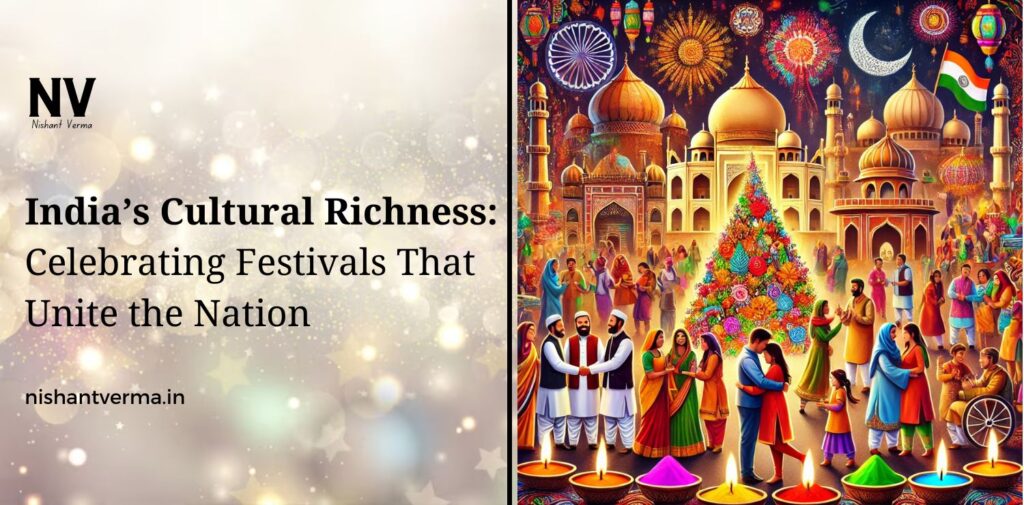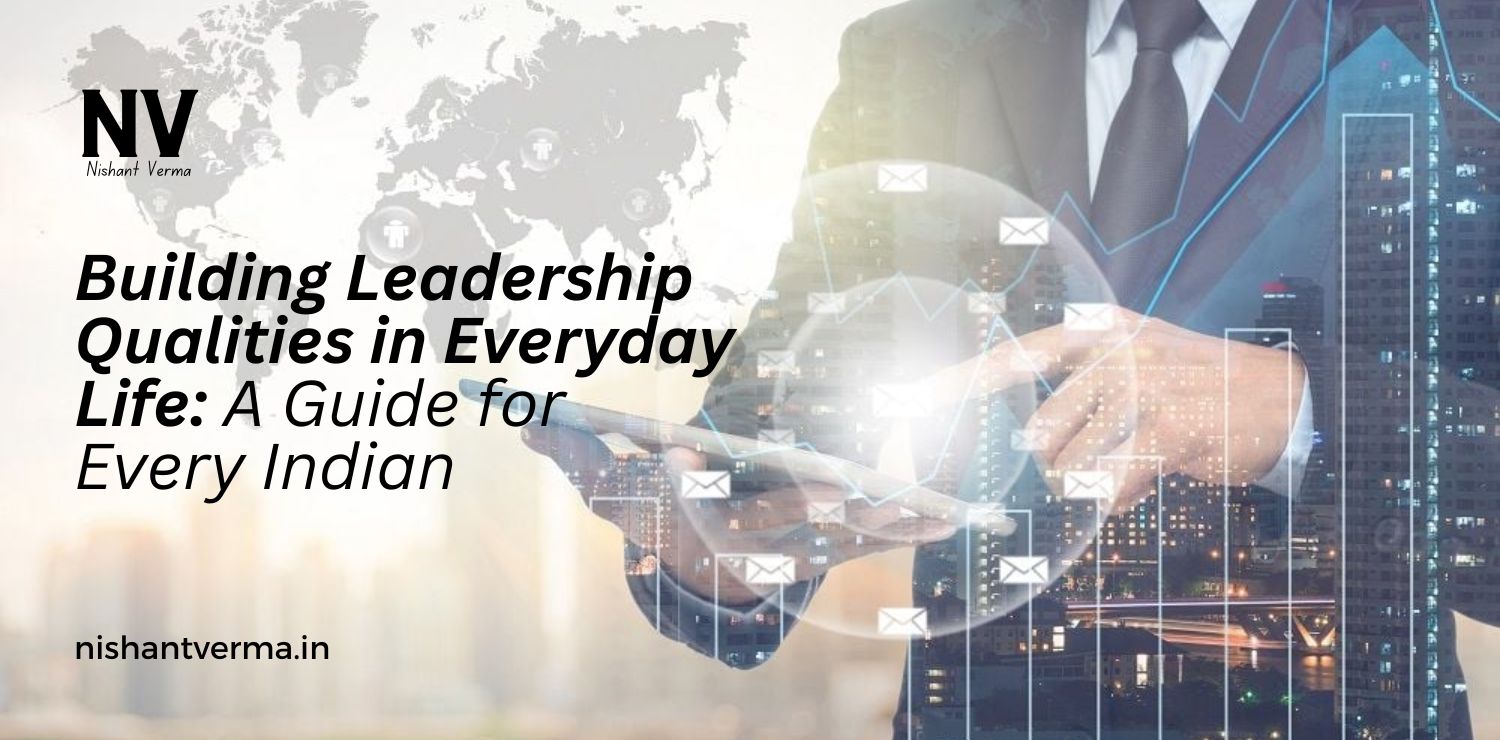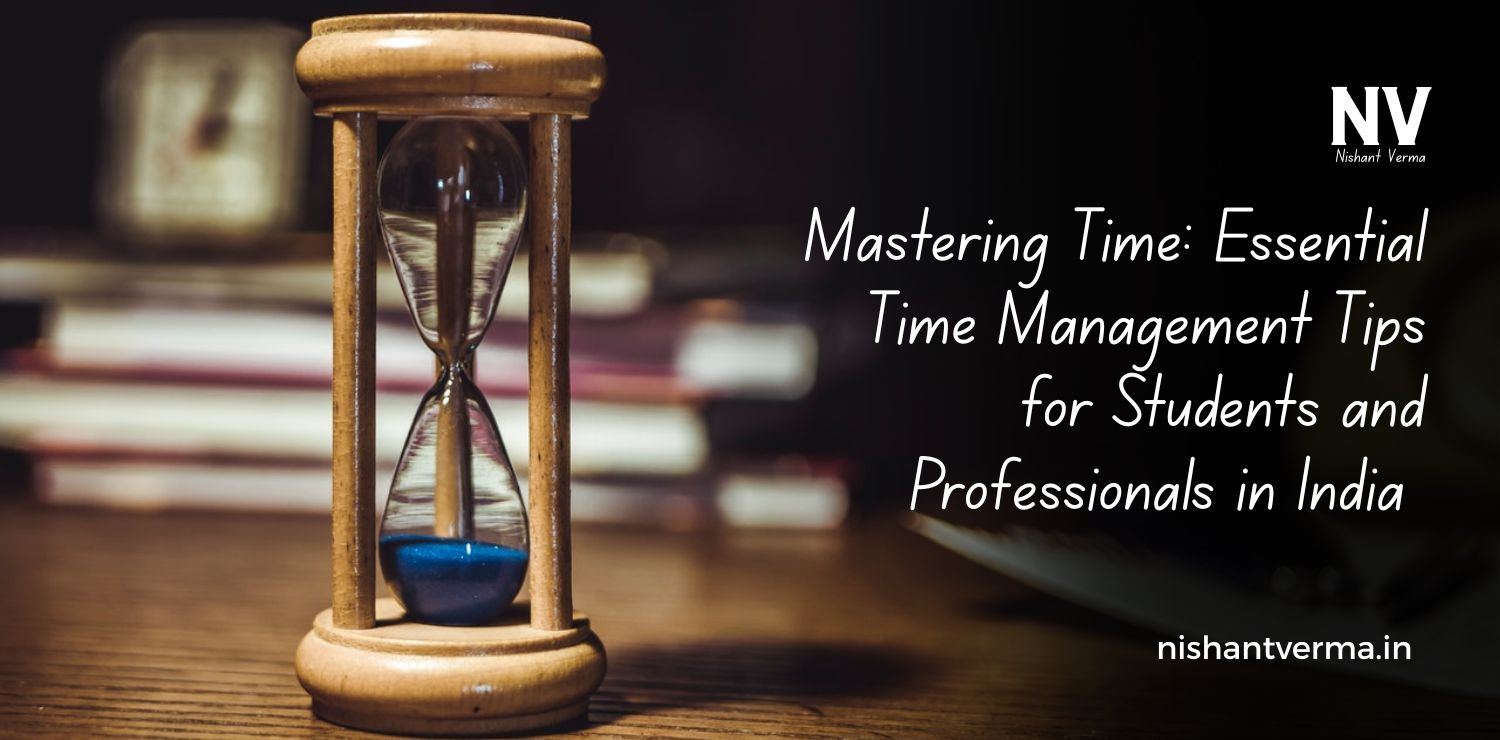India is a land of diversity. From the snowy peaks of the Himalayas to the warm beaches of the south, from the busy cities to the peaceful villages, India is a place where different cultures, languages, and religions coexist harmoniously. One of the most beautiful aspects of Indian culture is its festivals. These festivals are not just celebrations; they are a reflection of India’s rich heritage, its vibrant traditions, and the spirit of unity that binds the entire country together. No matter where you go, you will find people celebrating with joy, enthusiasm, and a sense of community.
In this article, we will explore India Cultural Richness and some of the major festivals of India, understand their significance, and see how they bring people together, fostering a sense of unity in the midst of diversity.
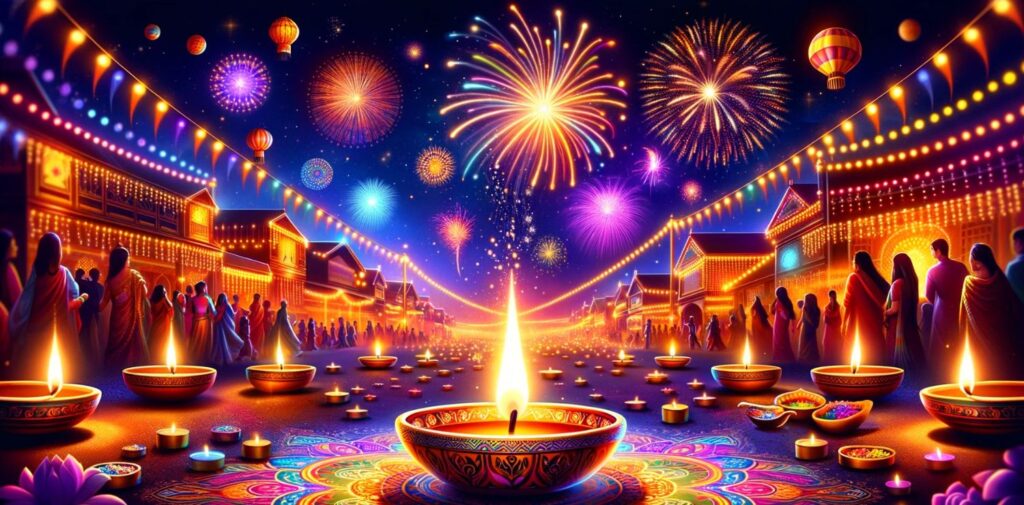
Diwali – The Festival of Lights
One of the most famous festivals in India is Diwali, also known as the Festival of Lights. Diwali is celebrated by Hindus, Sikhs, Jains, and Buddhists across India and around the world. It marks the victory of light over darkness and good over evil. The festival is celebrated with the lighting of oil lamps, bursting of fireworks, and the sharing of sweets and gifts.
The story behind Diwali varies across regions, but a common theme is the return of Lord Rama to his kingdom after 14 years of exile, during which he defeated the demon king Ravana. People celebrate Diwali by cleaning and decorating their homes, wearing new clothes, and offering prayers to Goddess Lakshmi, the goddess of wealth and prosperity.
What makes Diwali special is the way it brings people together. Families reunite, communities come together for prayers and celebrations, and the streets sparkle with lights. The shared joy and warmth of Diwali create an atmosphere of unity and love.
Holi – The Festival of Colors
Next comes Holi, the Festival of Colors, which is one of the most lively and exuberant festivals in India. Celebrated primarily by Hindus, Holi marks the arrival of spring and the triumph of good over evil. The festival is known for its playful spirit, where people throw colored powders at each other, dance, sing, and enjoy festive foods.
The story behind Holi is connected to the legend of Holika, a demoness who tried to kill her nephew, Prahlad, a devotee of Lord Vishnu. Prahlad was saved by Lord Vishnu, and Holika was burned in a fire. The festival symbolizes the burning away of evil and the joy of life.
What makes Holi unique is its ability to bring people of all backgrounds together. During Holi, social barriers vanish as everyone, regardless of age, gender, or status, participates in the fun. It is a festival that encourages unity, equality, and the celebration of life.
Eid – The Festival of Breaking the Fast
For Muslims in India, Eid is one of the most significant festivals. There are two main Eids celebrated each year: Eid-ul-Fitr and Eid-ul-Adha. Eid-ul-Fitr marks the end of the holy month of Ramadan, when Muslims fast from dawn to dusk. The festival is a time for feasting, giving charity, and spending time with loved ones.
Eid-ul-Adha, also known as the Festival of Sacrifice, commemorates the willingness of Prophet Ibrahim (Abraham) to sacrifice his son in obedience to God. However, before the sacrifice took place, God provided a ram to be sacrificed instead.
Eid is a time of joy and reflection, where Muslims come together for prayers in mosques, visit relatives, and give to the less fortunate. The spirit of giving and togetherness during Eid creates a sense of unity and compassion within communities.
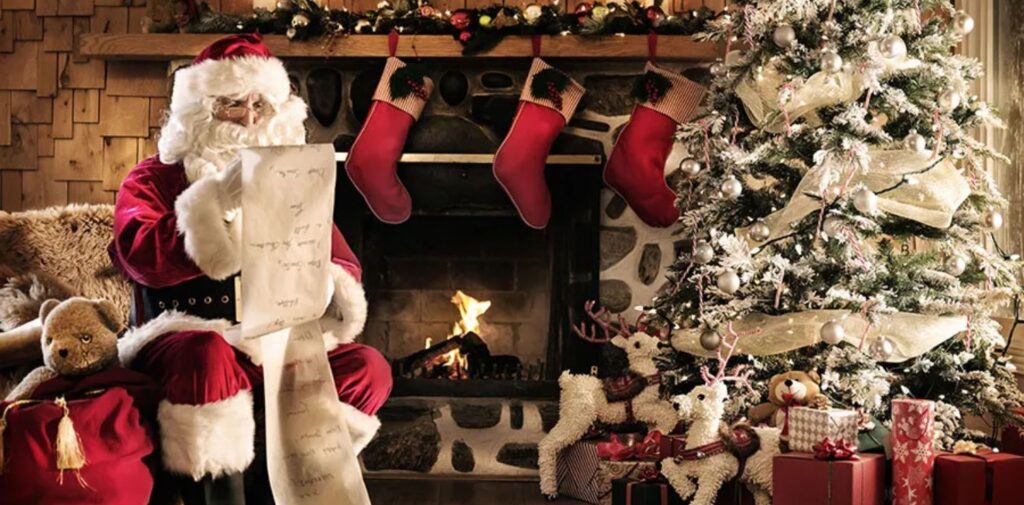
Christmas – A Celebration of Peace and Joy
Christmas, the celebration of the birth of Jesus Christ, is observed by Christians around the world. In India, Christmas is celebrated with great enthusiasm, especially in regions with large Christian populations, such as Goa, Kerala, and parts of the Northeast. The festival is marked by church services, feasts, and the decoration of Christmas trees with lights and ornaments.
For Christians, Christmas is a time to reflect on the teachings of Jesus, which include love, compassion, and peace. The message of Christmas transcends religious boundaries, and people from different communities join in the celebrations. The Christmas spirit of joy, sharing, and goodwill fosters a sense of unity and harmony across India.
Durga Puja – A Celebration of Feminine Power
Durga Puja is one of the most important festivals for Hindus, especially in West Bengal, Odisha, and Assam. The festival honors Goddess Durga, the divine feminine power who defeated the buffalo demon Mahishasura. Durga Puja usually takes place during the autumn season, and it involves elaborate rituals, vibrant processions, and cultural performances.
During Durga Puja, large clay idols of Goddess Durga are created and worshiped in pandals (temporary structures), and people offer prayers, perform dances, and sing devotional songs. The festival symbolizes the victory of good over evil and celebrates the strength and power of women.
What makes Durga Puja so significant is its ability to bring people together through the collective effort of community celebrations. People of all ages and backgrounds come together to organize events, cook, dance, and worship, creating a sense of togetherness and camaraderie.
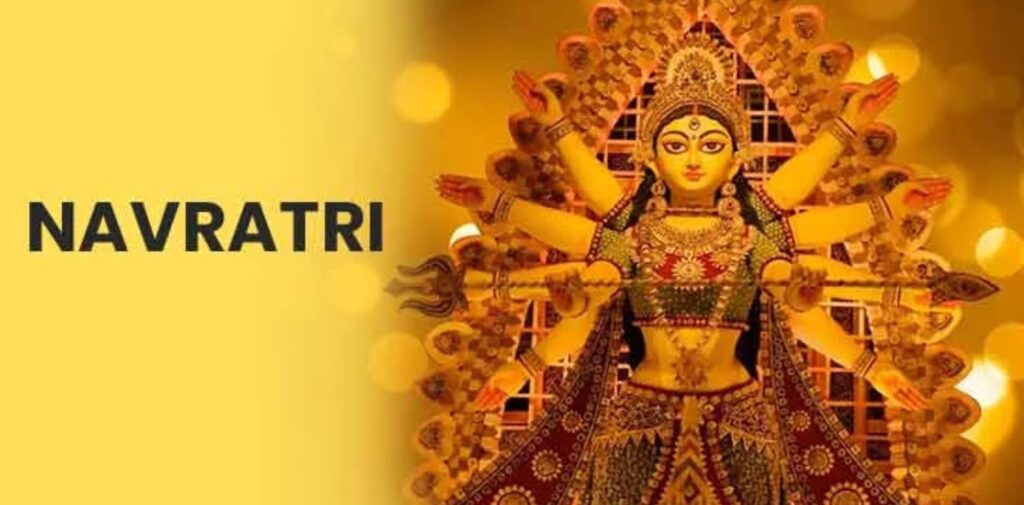
Navratri – Nine Nights of Prayer and Celebration
Navratri is a nine-night festival celebrated in honor of Goddess Durga. It is observed by Hindus across India, with the most famous celebrations happening in Gujarat, Maharashtra, and Uttar Pradesh. During Navratri, people fast, perform prayers, and participate in dances like Garba and Dandiya.
Navratri is a time of spiritual renewal, as devotees worship different forms of Goddess Durga. The last day of Navratri, known as Dussehra, is a celebration of the triumph of good over evil, symbolized by Lord Rama’s victory over Ravana.
Navratri fosters a sense of unity and devotion. People come together in groups to celebrate the festival through prayer, music, and dance, creating an atmosphere of joy and spiritual togetherness.
Onam – The Harvest Festival of Kerala
Onam is the most important festival in Kerala, celebrated by people of all religions. It marks the return of the mythical King Mahabali, who is believed to visit his people during Onam. The festival is a time for feasts, family gatherings, and colorful processions.
One of the main attractions of Onam is the Onam Sadhya, a traditional feast consisting of various vegetarian dishes served on a banana leaf. People also participate in events like boat races, dances, and flower arrangement competitions called Pookalam.
Onam is a festival that promotes unity by bringing together people from different communities, regardless of their religion. It is a time to celebrate Kerala’s culture and the joy of living together in harmony.
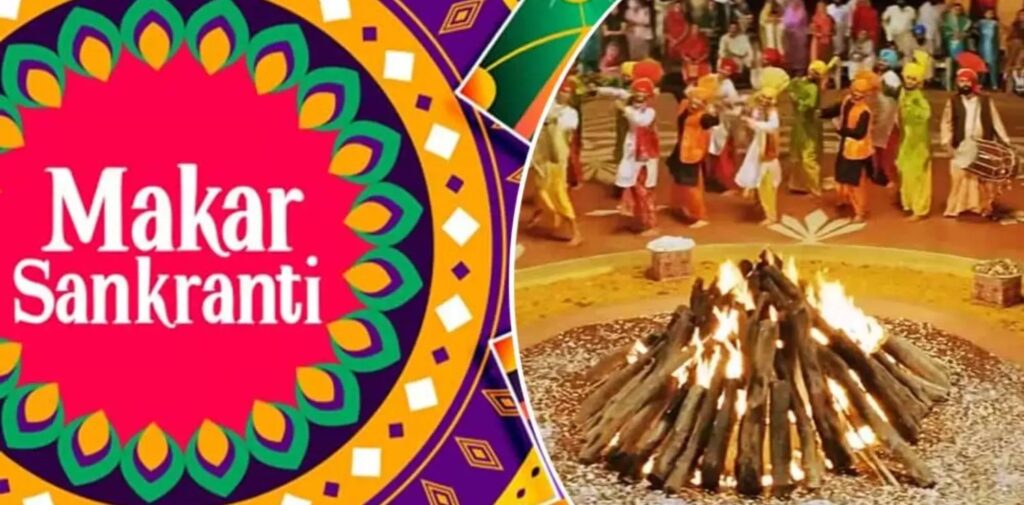
Makar Sankranti – The Festival of Harvest
Makar Sankranti is a festival celebrated across India to mark the beginning of the harvest season. It is dedicated to the Sun God and is observed with various regional variations. In Punjab, it is celebrated as Lohri, in Tamil Nadu as Pongal, and in Gujarat as Uttarayan.
The festival is known for flying colorful kites, cooking special foods, and offering prayers for a good harvest. Makar Sankranti also marks the transition of the Sun into the zodiac sign of Capricorn, signaling the end of winter and the arrival of longer days.
Makar Sankranti is a time for people to come together and celebrate the harvest. The shared joy of food, kites, and family gatherings makes this festival a symbol of unity and hope.
Conclusion: Festivals That Unite – India Cultural Richness
India’s festivals are more than just occasions for celebration; they are a reflection of the nation’s rich cultural heritage and a powerful force for unity. Whether it’s Diwali, Holi, Eid, or Christmas, each festival brings people together, fostering a sense of community and shared joy. In a country as diverse as India, these festivals play a crucial role in uniting people across regions, religions, and languages, reminding everyone that, despite their differences, they are all part of one nation.
So, next time you join in a celebration, remember that you are part of a long-standing tradition that has been uniting India for centuries. Let the spirit of these festivals continue to inspire unity, peace, and love across the nation.

